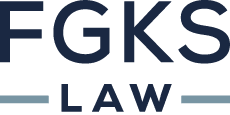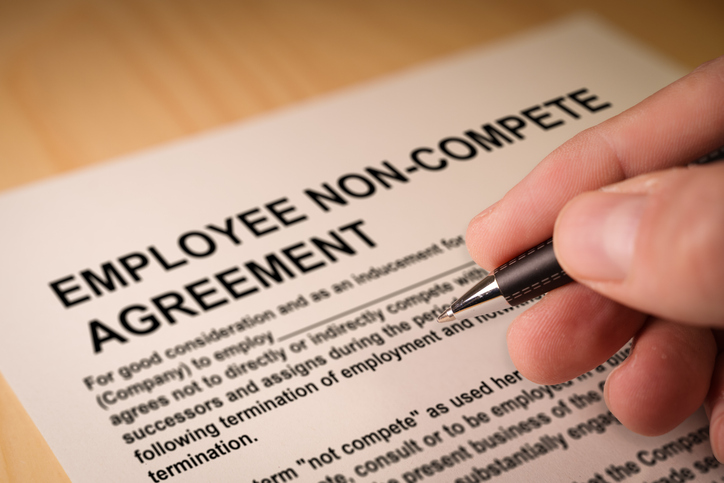Families First Coronavirus Response Act Signed Into Law
Employers with Less Than 500 Employees Must Provide Paid Sick Leave
In response to the rapidly evolving situation that is the COVID-19 pandemic, action has been taken at the federal level. On Wednesday night, President Trump signed the Families First Coronavirus Response Act (“FFCRA”) into law, a sweeping bill that provides a variety of relief for Americans in the face of the unprecedented pandemic that is COVID-19.
The multibillion-dollar bill includes important provisions that are aimed at saving lives as the pandemic unfolds, and will help families and businesses weather the financial fallout from the crisis. Here are the highlights:
EMERGENCY PAID SICK LEAVE ACT
- The FFCRA includes the Emergency Paid Sick Leave Act, which requires employers with up to 500 employees to immediately provide full-time employees with 80 hours of paid sick time. Part-time employees are entitled to paid sick time equivalent to those hours the employee works, on average, over a two-week period. In order to utilize this paid sick time, an employee must be unable to work (or telework) due to one of the six qualifying reasons:
- The employee is subject to a federal, state or local quarantine or isolation order related to COVID-19;
- The employee has been advised by a health care provider to self-quarantine due to concerns related to COVID-19;
- The employee is experiencing symptoms of COVID-19 and seeking medical diagnosis;
- The employee is caring for an individual who is subject to a federal, state or local quarantine order, or the individual has been advised to self-quarantine due to concerns related to COVID-19;
- The employee is caring for his/her child, if the child’s school or daycare has been closed or the child’s care provider is unavailable due to COVID-19 precautions; or
- The employee is experiencing any other substantially similar condition specified by Health and Human Services in consultation with the Department of the Treasury and the Department of Labor
- Small employers with less than 50 employees can seek a hardship waiver from the Department of Labor – however, no such regulations have been issued yet to articulate what criteria is necessary to be entitled to the hardship waiver.
- Employers are prohibited from requiring employees to use other paid leave before using the new paid sick time referenced above.
- The paid sick time that an employee is entitled to receive under this Act is to be calculated as follows:
- Emergency sick time relating to an employee’s own condition (1-3 above) is calculated based on the employee’s regular rate or applicable minimum wage, whichever is greater, but is limited to $511 per day and $5,110 total.
- Emergency sick time relating to situations where the employee is acting as a caregiver or if s/he is experiencing any other substantially similar condition (4-6 above) is calculated based on two-thirds of the employee’s regular rate or applicable minimum wage, whichever is greater, but is limited to $200 per day and $2,000 total.
EMERGENCY FAMILY AND MEDICAL LEAVE EXPANSION ACT
- The Family and Medical Leave Act (“FMLA”) is temporarily amended to allow an employee to take up to 12 weeks of job-protected leave if s/he is unable to work or telework due to a need to care for a child whose school or daycare has closed as a result of COVID-2019. The first 10 days of this emergency FMLA leave may consist of unpaid leave, but the employee must then be paid for each subsequent day of leave at not less than two-thirds of the employee’s regular rate of pay, so long as it does not exceed $200 per day and $10,000 total.
- This special FMLA provision applies to employees who have been employed for at least 30 days and applies to employers with fewer than 500 employees (differing from the FMLA’s usual coverage provisions, i.e., employers with 50 employees or more and employees who have worked 1,250 hours and at least 12 months). An employee can substitute accrued vacation, personal leave, or medical or sick leave for the initial ten-day period of unpaid leave.
- As with the paid sick time provisions, small businesses with fewer than 50 employees may be exempted from providing this emergency FMLA leave by the Secretary of Labor if providing such would jeopardize the viability of the business as a going concern.
TAX CREDITS
- Employers can receive tax credits for 100 percent of the qualified paid sick and paid family and medical leave wages paid to employees (with the above-noted limits – underlined and bolded).
This bill takes effect April 2, 2020 and will sunset on December 31, 2020. If you have any questions about your obligations under the Families First Coronavirus Response Act, or any other questions about what you should be doing in light of the COVID-19 pandemic, please do not hesitate to contact Bryan Niemeyer, Certified Labor and Employment Law Specialist, FGKS Law, at 937-492-1271 or bniemeyer@fgks-law.com.




